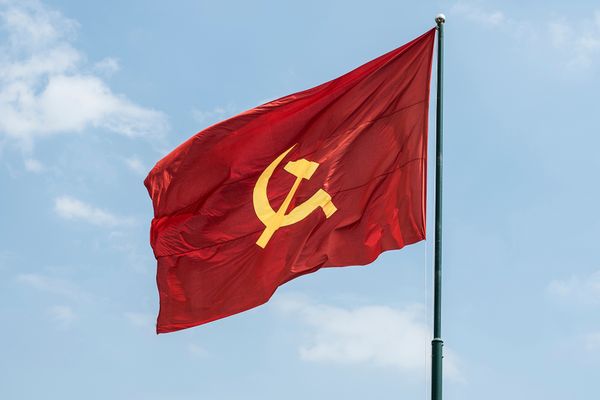1.1.2
Yalta Conference
Relations Between the 'Big Three'
Relations Between the 'Big Three'
Stalin, Roosevelt and Churchill were known collectively as the 'Big Three'.


A united front
A united front
- The 'Big Three' were keen to present a united front in 1945 despite their opposing political ideologies.
- They posed for carefully staged photographs at events such as the Yalta Conference of February 1945. This hid the tensions that existed between them.


Roosevelt's opinion
Roosevelt's opinion
- Privately, Roosevelt thought that he could work with Stalin as he thought they shared the same vision for post-war Europe.
- Roosevelt thought that Churchill was simply too sensitive to Stalin’s provocations.


Stalin's opinion
Stalin's opinion
- Stalin thought that Churchill was a great statesman but distrusted him greatly believing he was much more of a threat than Roosevelt.
- Stalin preferred Roosevelt to Churchill and treated Roosevelt with respect.


Churchill's opinion
Churchill's opinion
- Churchill did have grave reservations about Stalin who he thought would challenge Britain’s imperial interests.
- Churchill also thought that Roosevelt was wrong to trust Stalin the way he did and thought Roosevelt was too pro-Russian.
Tensions at Yalta
Tensions at Yalta
The 'Big Three' met at the Yalta Conference in February 1945 to discuss what Europe would look like after the Second World War. The fate of Poland was the main source of tension.


Poland
Poland
- The USSR liberated Poland and set up their own government in Lublin. This was a communist government. The original Polish government was exiled to London because of WW2.
- At Yalta, Stalin agreed that he would allow members of the exiled Polish government into his Lublin government. He also promised that Poland would have free and fair elections.
- This pleased the USA and Britain as they thought communist influence in Poland would dwindle.
- It was also agreed that the Polish borders would be altered; giving areas from Eastern Germany to Poland and other Polish land to the USSR.


Germany
Germany
- At Yalta, it was agreed that until a final settlement was conducted, Germany would be divided into four Power Zones.
- Each would be controlled by a different country; USA, USSR, Britain and France.
- Berlin (the capital city) would also be divided into similar zones.


Other agreements
Other agreements
- The USSR agreed to join in the war against Japan in return for the southern half of the Sakhalin Island and economic rights in Manchuria.
- The Big Three at Yalta also agreed on a common set of ideals as the victorious allies known as the Declaration of Liberated Europe.
- Lastly, at Yalta, the establishment of the United Nations was agreed upon. In April 1945, a conference was to be held in America which would launch the new world organisation.
1Origins of the Cold War, 1945-9
1.1Events of 1945
1.2The Collapse of the Grand Alliance
1.3Developing Tensions
1.4US Involvement in Europe
2Widening of the Cold War
2.1US Containment in Asia
2.2The Korean War
2.3Increasing Cold War Tensions, 1949 -1953
3The Global War
3.2Cold War Rivalries
3.3Conflict in Asia
3.4Confrontation Between Superpowers
4Confrontation & Cooperation
4.2Cooperation
4.3Pressures on the USSR
5Brezhnev Era
5.1Detente
5.2Second Cold War
5.3Developments in Africa & Americas
6Ending of the Cold War
6.1Gorbachev
6.2Cooperation between US & USSR
6.3Collapse of Communism in Eastern Europe
6.4End of Tensions Across the World
Jump to other topics
1Origins of the Cold War, 1945-9
1.1Events of 1945
1.2The Collapse of the Grand Alliance
1.3Developing Tensions
1.4US Involvement in Europe
2Widening of the Cold War
2.1US Containment in Asia
2.2The Korean War
2.3Increasing Cold War Tensions, 1949 -1953
3The Global War
3.2Cold War Rivalries
3.3Conflict in Asia
3.4Confrontation Between Superpowers
4Confrontation & Cooperation
4.2Cooperation
4.3Pressures on the USSR
5Brezhnev Era
5.1Detente
5.2Second Cold War
5.3Developments in Africa & Americas
6Ending of the Cold War
6.1Gorbachev
6.2Cooperation between US & USSR
6.3Collapse of Communism in Eastern Europe
6.4End of Tensions Across the World
Unlock your full potential with Seneca Premium
Unlimited access to 10,000+ open-ended exam questions
Mini-mock exams based on your study history
Unlock 800+ premium courses & e-books